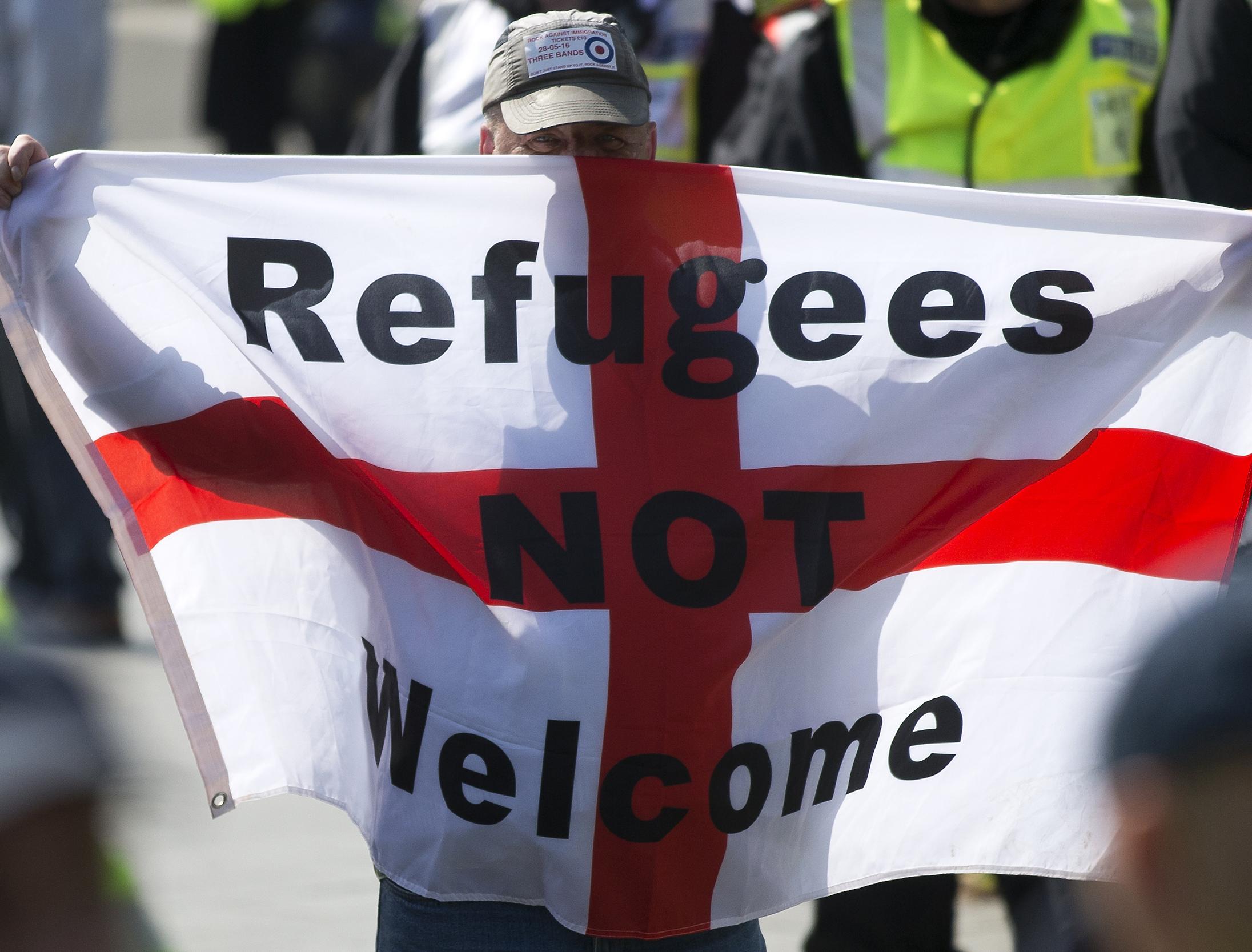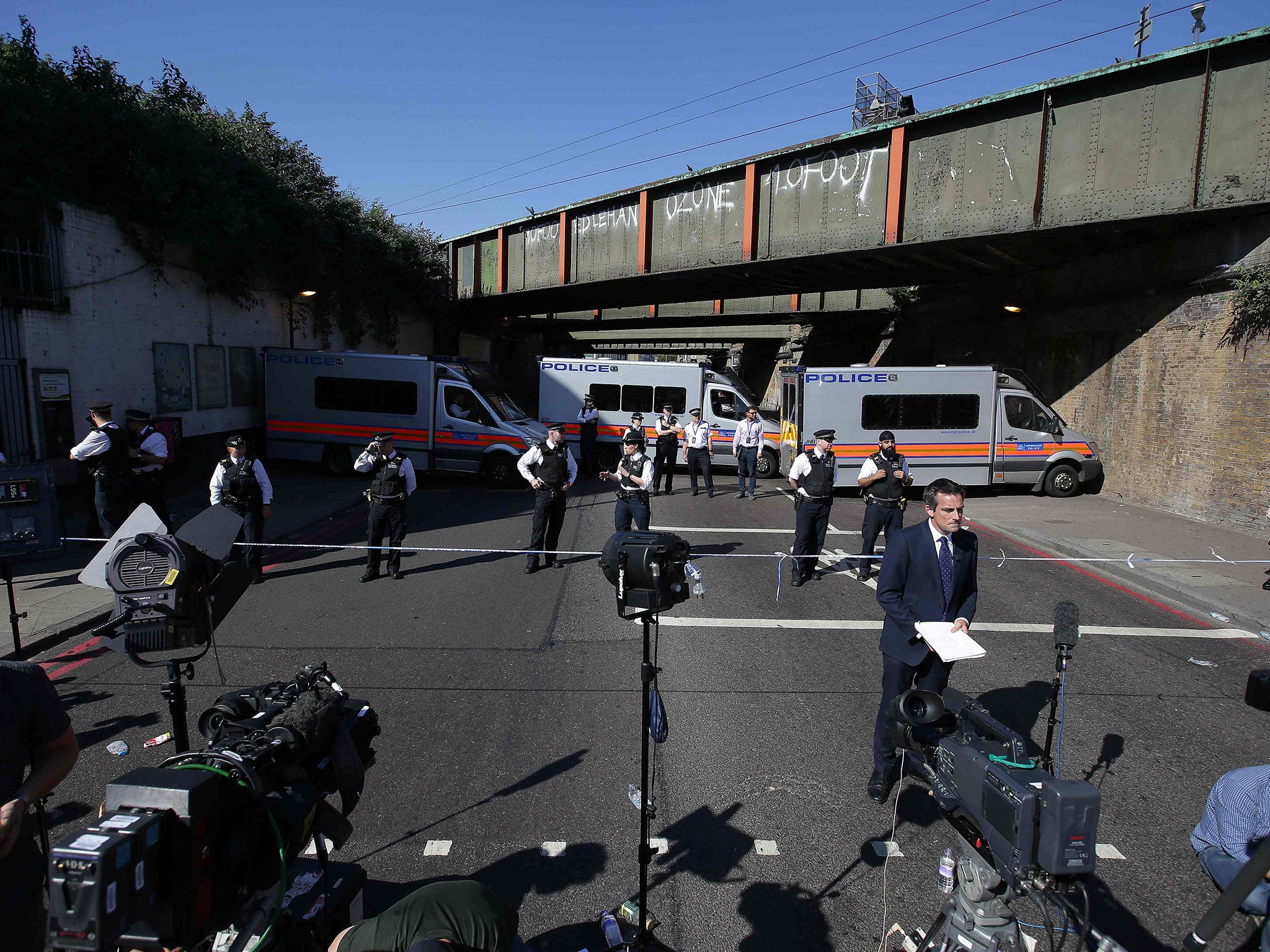Number of far-right extremists flagged to Government terror unit soars 30% in a year
Dramatic rise can be revealed after Muslim worshippers were mowed down outside north London mosque on Monday by suspected terrorist

Your support helps us to tell the story
From reproductive rights to climate change to Big Tech, The Independent is on the ground when the story is developing. Whether it's investigating the financials of Elon Musk's pro-Trump PAC or producing our latest documentary, 'The A Word', which shines a light on the American women fighting for reproductive rights, we know how important it is to parse out the facts from the messaging.
At such a critical moment in US history, we need reporters on the ground. Your donation allows us to keep sending journalists to speak to both sides of the story.
The Independent is trusted by Americans across the entire political spectrum. And unlike many other quality news outlets, we choose not to lock Americans out of our reporting and analysis with paywalls. We believe quality journalism should be available to everyone, paid for by those who can afford it.
Your support makes all the difference.The number of suspected far-right extremists flagged to the Government’s key anti-terror programme soared by 30 per cent in the past year, The Independent has learnt.
The dramatic rise can be revealed after Muslim worshippers were mowed down outside a north London mosque in the early hours of Monday morning by a man driving a van in what police described as a terrorist attack.
The suspect has been named as 47-year-old Darren Osborne, a father-of-four from Cardiff, who was arrested on suspicion of terror offences and attempted murder and remains in custody.
One man died at the scene and a further 11 were injured, but the attacker was not previously known to security services. Eyewitnesses claimed he shouted: "I'm going to kill all Muslims," before making "taunting" gestures and laughing.
Theresa May said the attack was “every bit as sickening” as the recent Islamist terror attacks on Manchester and London and promised to stamp out extremist ideologies of all kinds.
The Government’s counter-terror Prevent scheme – championed by the Prime Minister during her time as Home Secretary – has been criticised amid claims it has focused disproportionately on Islamic terrorism.

But just under a third of all people being monitored under the Channel programme in 2016/17– part of the Prevent terror prevention scheme – believe in extreme right-wing ideologies and are vulnerable to radicalisation, according to unpublished Home Office figures. The figure rose from 25 per cent in 2015/16.
The spike in cases comes a year after MP Jo Cox was murdered by far-right terrorist Thomas Mair and follows a dramatic rise in the number of hate crimes reported against black and minority ethnic groups and religions.
Tim Farron, leader of the Liberal Democrats, said a lack of government action to tackle the rise of the extreme far-right has produced a “better climate” for attacks to occur.
“While all the rhetoric from the Conservative government has been about Islamic fundamentalism, it has largely ignored the rising threat from white extremists who are every bit as dangerous and depraved as any other terrorist,” he said.
“Sadly I am not convinced that Theresa May even knows where to start when it comes to bringing our divided communities together. Instead of being open, tolerant and united she is practising the politics of divide and rule. Clearly the responsibility for terrorist outrages lies with the terrorists. But that doesn’t mean government can’t produce a better climate.”
Fiyaz Mughal, founder of Tell Mama, a group that aims to tackle anti-Muslim hatred, said there had been a “systemic failure” in identifying the threat posed by the far-right in the UK. “It is high time judges, it is high time this Government, and it is high time the police start to really address this issue and accept it is not just ‘free speech’,” he said.
“We knew this was coming, I could have told you two years ago that it was going to be a mosque and it was going to be Ramadan, we knew it and we have been lobbying and we have been pushing for this threat to be taken more seriously.”
The jump in the number of far-right cases being dealt with by Prevent comes after a record number of white people were arrested last year on suspicion of terrorism.
Official statistics found 91 out of a total 260 people held on suspicion of terrorism offences were white – a rise of 20 from 2015 and the highest number since 2003.
White suspects made up 35 per cent – or one in three – of all terror related arrests in 2016, compared with 25 per cent in 2015. Home Office figures also showed 41 per cent of people who were stopped and searched under anti-terror legislation between 2009 and 2016 were white.
Ms May and Jeremy Corbyn visited the scene of Monday's attack on Seven Sisters Road to offer their solidarity to the local community, along with Home Secretary Amber Rudd and London Mayor Sadiq Khan.
Mr Khan said the attack, like those perpetrated in Manchester and London Bridge, appeared to be targeting a particular community and was "an assault on all our shared values of tolerance, freedom and respect".
Shadow Home Secretary Diane Abbott said the Prevent scheme must now undergo a "complete overhaul" to better encompass the diverse range of threats facing UK residents, including far-right extremism.
“There is a widespread distrust because it is felt that it targets just one community,” she said. “Tragically, we see that there are multiple terrorist threats facing us, including the far right, al-Qaeda or Isis-inspired terrorists as well as others.
“We know that a large proportion of referrals to Prevent involve far right or fascist terrorism, but it is far less clear whether this is reflected in the charging or conviction rates.
“Terrorism affects us all. To be effective, counter-terrorism needs the support of us all. This means effective intelligence ... it also means uniting all communities against our common enemy, the terrorist perpetrators.”
Dr Paul Jackson, a historian from University of Northampton and an expert on far-right terrorism, said far-right threats are often not recognised as terrorism as they do not always fit the stereotypical ideas of organised terror networks.
“People have a certain image in their head about terrorism – with Islamist extremism they think of Isis, of it being directed by an overarching network, meanwhile the far-right doesn't have a single organisation that pushes people to commit these acts,” he told The Independent.
He said many of the far-right groups such as the English Defence League or British National Party had produced “splinter groups” that hold more hardline extremist motivations. He believes even if there is not one single overarching ideology, lone far-right extremists can “sometimes be really sophisticated and very engaged in violent political acts.”